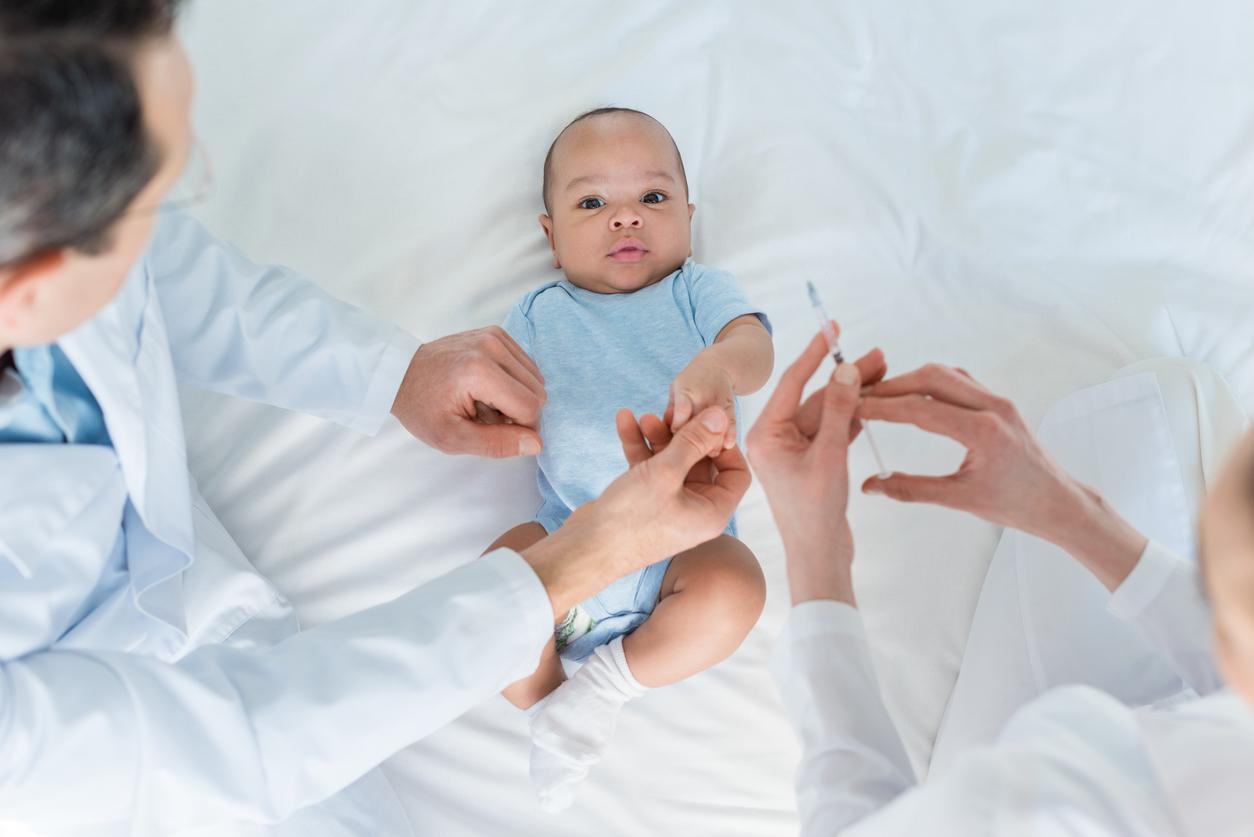A study yesterday in JAMA Network Open shows 77.5% of infants 8 months and younger received protection against respiratory syncytial virus (RSV) via maternal vaccination or receipt of the monoclonal antibody drug nirsevimab from October 2023 to March 2024.
The study was based on a cohort seen in the Kaiser Permanente Northern California healthcare system and suggests the United States had ample supply of the RSV therapeutics during the first season they were available. But another new study from Wisconsin found much lower uptake of the drug and vaccine.
Both maternal vaccination and administration of nirsevimab to young infants gained approval in 2023.
The study included 17, 251 infants, 51.4% were boys, and the average maternal age was 31.2 years. There were 5,855 infants (33.9%) exposed to only maternal RSVpreF vaccine (Abrysvo), at a median gestational age of 34 weeks, and 7,051 infants (40.9%) received only nirsevimab at a median age of 4 days.
Women over 35 more likely to get vaccine
Only 2.6% of infant (460) were exposed to both maternal vaccine and nirsevimab, of whom 143 (31.1%) were born preterm and 111 (24.1%) were admitted to the neonatal intensive care unit, the authors said.
"Most infants (3615 of 4851 [74.5%]) born October to November received nirsevimab, while more than half of infants (4817 of 9213 [52.3%]) born January to March were exposed to maternal RSVpreF," the authors wrote, explaining the temporal correlations seen in the study.
Mothers over the age of 35 were more likely to experience maternal vaccination, while babies born to mothers 25 years and younger were more likely to receive nirsevimab.
Exposure to maternal vaccine and/or nirsevimab was highest among infants of Asian mothers (86.7%; 95% confidence interval, 85.7% to 87.7%]) and lowest among infants of Black mothers (70.2%).
Infants of younger mothers and Black mothers—historically undervaccinated groups—had lower overall RSV protection coverage, seemingly driven by discrepancies in maternal RSVpreF vaccination more than infant nirsevimab.
"Infants of younger mothers and Black mothers—historically undervaccinated groups—had lower overall RSV protection coverage, seemingly driven by discrepancies in maternal RSVpreF vaccination more than infant nirsevimab," the authors wrote. "The availability of 2 different RSV protection methods in sufficient supply may have contributed to an increased proportion of infants protected against RSV, which may help mitigate disparities."
Much lower coverage in Wisconsin
In another new study, this one published in Vaccine, researchers used data from the Wisconsin Immunization Registry and Office of Vital Records to evaluate uptake of both maternal vaccine and nirsevimab on overall infant protection against RSV.
They found much less uptake than the Kaiser Permanente study.
Among 27,788 live births recorded from October 1, 2023, to March 31, 2024, 5,056 infants (18.2%) received nirsevimab and 4,767 women who gave birth during this timeframe (17.2%) received the maternal RSVpreF vaccine.
Altogether, 36.2% of infants were protected against RSV-associated lower respiratory tract infection, while 63.9% of infants were not, the authors said.
"These findings suggest that improved efforts on several fronts are needed to ensure equitable and timely access to both RSV products while also increasing the number of infants protected against RSV," the authors wrote.



















